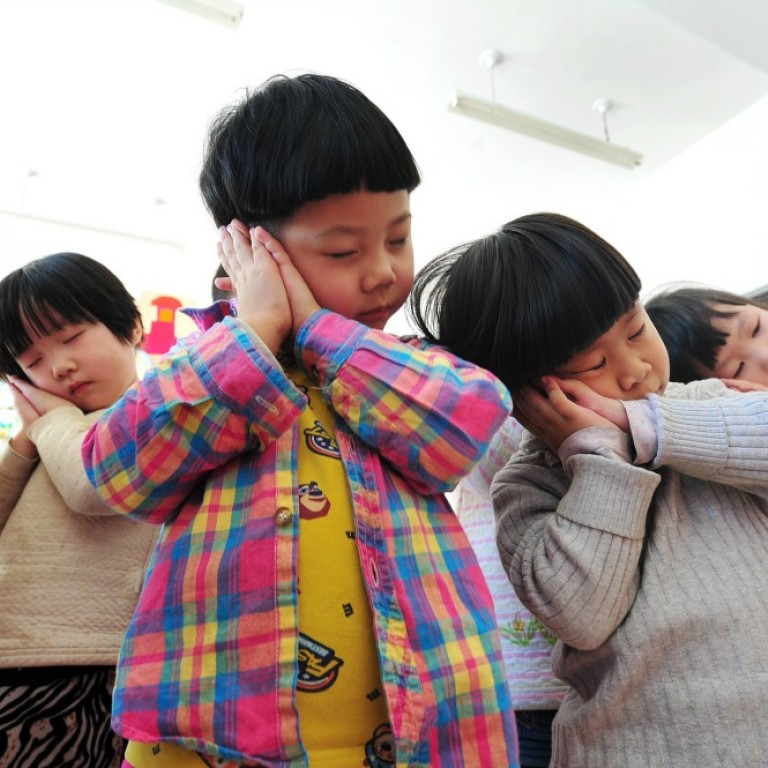
Study gives parents a wake-up call over hidden dangers of snoring snoozers
One in eight Hong Kong children snore, which may be a symptom of a sleep disorder that can lead to behavioural problems and obesity
Parents have been given a wake-up call about their children’s snoring after a study found that about one in eight of the city’s youngsters have the noisy night-time habit.

“The study has highlighted a much neglected area of child health,” Kwong Wah Hospital paediatrician Dr Daniel Ng Kwok-keung, who led the research, said.
He said most parents did not realise that habitual snoring was a symptom of obstructive sleep apnea (OSA), an obstruction of the upper airway.
The condition reduces oxygen in the blood and can lead to hypertension as early as kindergarten age.
Poor sleep quality could also cause children to become restless, leading to memory and behaviour problems such as attention deficit hyperactivity disorder.
“Habitual snoring is common in children and teenagers. But most people just neglect the problem unless they see the child struggle to breathe,” Ng said.
“They think the child has just [inherited the snoring habit] from the father who snores regularly. In fact, both father and child may have OSA.”
The study found that boys who were overweight or suffered from asthma were more likely to develop the condition.
Symptoms may be present for years without being noticed, leading children to feel drowsy and fatigued during the day as a result of sleep disturbance at night.
Parents of more than 2,000 children aged six to 12 were interviewed in the study by the Kwong Wah Hospital’s department of paediatrics, the results of which were published in the Journal of Paediatrics and Child Health last month.
It found that 12.7 per cent of Hong Kong children were persistent habitual snorers – meaning they snored more than six nights a week.
The figure was within the international prevalence rate of habitual snoring in children, which is between 6.9 to 14.8 per cent.
The study has identified that being a male, overweight and having asthma were the risk factors for habitual snoring.
It also revealed over 90 per cent of the subjects slept less than internationally recommended rate for the age group of 8 ½ to 10 ½ hours a day.
“The current study shows that sleep deprivation is indeed an important public health issue as it is so common and so important to learning, as well as being associated with obesity and dyslipidema [an excess of cholesterol or fats in the blood],” the journal article said.
Ng added that lack of sleep affected cognitive functions and obesity as children that are too sleepy to play physically needed food to keep them awake. The sleeping problem was much neglected and under-diagnosed, he said.
“The most important [remedy] is to offer a proper diagnostic test called sleep polysmonography [PSG] that is supervised by qualified technicians. One of the problems in Hong Kong is that PSG is not done properly and gives a false negative result that could give false reassurance to parents,” the paediatrician said.
While getting into better shape would help those who were overweight, Ng said there were other treatments for those whose snoring could not be controlled.
These included medication, non-invasive ventilation such as continuous positive airway pressure, and surgery.

